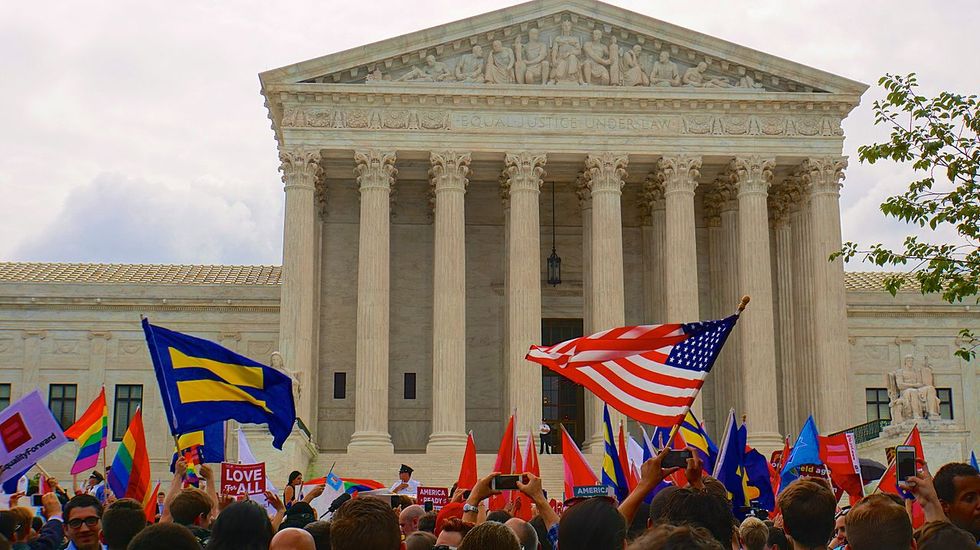The Constitution is the most important piece of legislation for the United States (maybe coming second only to the Declaration of Independence). Over the years, it has come to have a total of 27 Amendments that each citizen abides by. While some of these Amendments seem frivolous such as Amendment 18, there’s a reason that each Amendment is in a piece of legislation called the “Law of the Land.” However, as years continue to pass and innovations continue to develop, there is a question that is at the forefront of law interpretation: is the Constitution “outdated?”
Now, absolutely, the Constitution is not something to challenge without a strong sense of confidence and ability to make the case. But, that doesn’t mean it isn’t something to at least consider, especially in the midst of a technological revolution. Each day, there is something new in the works that no one has heard of; it has become clear that there is no finite point of “inventing everything that will ever be invented.” There are a lot of topics not discussed in the Constitution which can be seen two ways: strict and loose, which intertwine with both modernist and originalist theory. With strict interpretation from a federal standpoint, one can look at a document and say “the issue at hand is not discussed here; therefore, the decision should be left to the states or individuals to decide for themselves.” In a loose sense, any issue can be seen in such a light that it may not be discussed or formally laid out, so there is nothing that says a federal government can’t establish laws for it. In other words, originalist theory supporters like the thought of interpreting the Constitution as it was meant to be interpreted, while modernist theory supporters argue that the Constitution should be interpreted and dealt with pertaining to a contemporary sense.
There’s also the notion that the Constitution was written by a select group of people for a select group of people. This is a contributing factor as to why there are amendments like 14, 15, and 19. So, in alignment with modernist constitutional theory and originalist theory as well as interpretation, a grand question could amount to the following: should there be a bigger push for more amendments as we progress as a society or should the Constitution stay framed as is currently is and leave the rest up to the states?
If the Constitution is left as it stands in original theory, this could lead to a lot of discontent among citizens, as there are no universal laws for something like healthcare. This could drive more migration among people and really mess up state economies. If someone is in dire need of better healthcare and does not receive it from a state or a private company in a way that can suit them, what other choice is there than to move to somewhere else to increase that person’s standard of living?
However, with modernist theory, some feel as if that could be overruling a document so important that it has carried a nation for over 200 years. Also, with too much government intervention, it can lead some citizens to feel as if they don’t really have a say in what happens because the government will do what it wants anyway. Why would I vote on healthcare if the government won’t listen to my voice? (Another reason to always call your representatives and vote: they need to hear your voice). Not to mention, specifically with healthcare, there could be virtually only one standard of care and the very idea of caring for someone would be very different than what it is now in the U.S., as seen in England.
Personally, I feel like that the Amendment process is so difficult for a reason, but I think it’s worth it to try and continue to add to it. The ERA should have been passed in its time, but it did not; if people still feel as if those same injustices still exist today, then by all means, do what you can to reintroduce it and fight for it. I understand the originalist thought and the want to leave the choice up to the states, but I also think that could get messy, especially for people who live on state borders/ people who live in a town with half in one state and the other half in another. It could create a lot of problems to have varying rules upon varying states, so I think government intervention in the sense of setting at least a minimum standard for each state is good.
While I feel as if people should truly petition for another Amendment if their heart so desires, I don’t necessarily think it’s the first place to start. There’s got to be an outstanding problem where one can gather a consensus from other peers in order to bolster a movement and fight back. Sometimes, Amendments don’t have to do the trick and passing legislation for an Act can.
Originalist theory and modernist theory are two polar opposites, but carry an illustrative point that it’s important to understand what the pros and cons are of government intervention, as well as whose rights among all citizens would be impacted the most. They also carry the point to not only pay attention to the politics of it all, but to also be sure one understands what’s happening in the Supreme Court and who exactly is in charge there, as well as some of the lower courts. Judge decisions should not be decided on a personal agenda, but rather an honest judgment and examination of what exactly the impact of one law can carry.
















